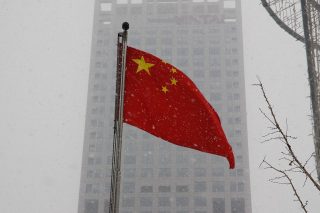Since the beginning of January
2020, the Chinese Maritime Safety Administration (MSA) has found two ships in
Chinese waters to be in breach of new sulphur regulations as they were using
non-compliant fuel, the Standard P&I club said.
2020, the Chinese Maritime Safety Administration (MSA) has found two ships in
Chinese waters to be in breach of new sulphur regulations as they were using
non-compliant fuel, the Standard P&I club said.
As informed, the first ship was
under a port state control inspection in Qingdao China when MSA verified the
use of fuel oil with a sulphur content of .6777% mm.
under a port state control inspection in Qingdao China when MSA verified the
use of fuel oil with a sulphur content of .6777% mm.
The second ship was berthed in
Xiamen when the MSA found that it was burning non-compliant fuel. The ship had
been at berth nearly six days after changing over to compliant fuel.
Xiamen when the MSA found that it was burning non-compliant fuel. The ship had
been at berth nearly six days after changing over to compliant fuel.
“However, it is likely that
previous high sulphur fuel residue remained in the engine fuel system resulting
in emissions over the China ECA limit. The ship was ordered to take effective
measures to purify the fuel system,” the club said.
previous high sulphur fuel residue remained in the engine fuel system resulting
in emissions over the China ECA limit. The ship was ordered to take effective
measures to purify the fuel system,” the club said.
It is not clear yet whether the
MSA will fine the ships for the breaches.
MSA will fine the ships for the breaches.
According to the Chinese
implementation plan of IMO 2020, the MSA will handle infractions in accordance
with China’s Atmospheric Pollution Prevention and Control Law. Article 106 of
this law provides that ships can be fined no less than RMB10,000 (approximately
USD 1,445) but no more than USD 14,400.
implementation plan of IMO 2020, the MSA will handle infractions in accordance
with China’s Atmospheric Pollution Prevention and Control Law. Article 106 of
this law provides that ships can be fined no less than RMB10,000 (approximately
USD 1,445) but no more than USD 14,400.
As of January 1, 2020, ships
sailing in Chinese inland waterways are required to use fuel with less than 0.1
percent sulphur content, while ships in the Hainan waters within emission
control areas and other waters are required to cut their sulphur to 0.5
percent.
sailing in Chinese inland waterways are required to use fuel with less than 0.1
percent sulphur content, while ships in the Hainan waters within emission
control areas and other waters are required to cut their sulphur to 0.5
percent.
Furthermore, ships are prohibited
to discharge water from open-loop scrubbers in China emission control areas.
International ships entering waters under the jurisdiction of China are
prohibited to carry non-compliant fuel oil onboard.
to discharge water from open-loop scrubbers in China emission control areas.
International ships entering waters under the jurisdiction of China are
prohibited to carry non-compliant fuel oil onboard.
From March 1, 2020, onward, a
foreign ship carrying non-compliant fuel oil in the Chinese waters may be
required to discharge the non-compliant fuel oil, and if permitted by the MSA
of calling port, to retain the non-compliant fuel oil on board with a
commitment letter stating it will not be used in waters under the jurisdiction
of China.
foreign ship carrying non-compliant fuel oil in the Chinese waters may be
required to discharge the non-compliant fuel oil, and if permitted by the MSA
of calling port, to retain the non-compliant fuel oil on board with a
commitment letter stating it will not be used in waters under the jurisdiction
of China.
World Maritime News.

































































